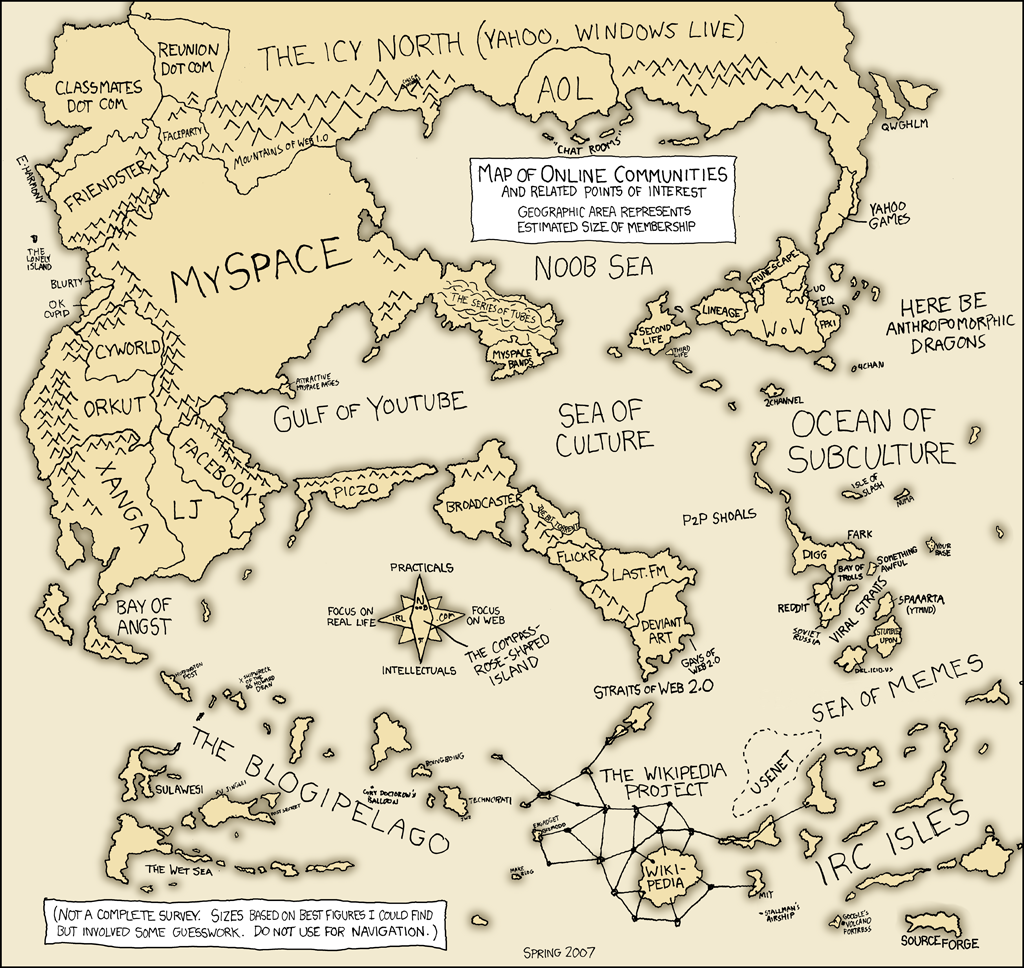May 2007 - Posts
In discussing business models at the Dealmaker Forum this week, Don Dodge found that the "freemium" model is popular in the start-up scene. (Freemium = a free service, usually ad-supported, with an up-sell to paid premium subscriptions / services).
He asked asked each of them what kind of conversion rates they were seeing and heard that the average is less than 3% conversion.
Don did some math:
"100,000 free users convert to 3,000 paid users. They pay between $10 to $50 per user per month. Lets use $25 as an average. That is $75K a month or $900K per year. That is an excellent revenue stream for companies that typically have 3 to 5 employees. And, it is an annuity stream that continues to grow every year. By the 3rd or 4th year these small companies can be generating $3M to $5M a year, still with less than 10 employees. Most of these small companies don't take Venture Capital so they own the whole company. pretty good cash flow business."
Nice...
"A frame nested in a frame nested in a frame nested in a web page. SEVEN SCROLLBARS! Someone redesign this, for god’s sake."
Sadly, this is referring to an MSDN page.
When the UK ID Card scheme was first announced in 2002 the cost was estimated at between £1.3 billion and £3.1 billion over a period of 13 years.
The Home Office's most recent estimate has revised it upwards, again, to be £5.31 billion over a period of 10 years (2006 to 2016).
I haven't seen the maths reported elsewhere as follows, but it occurs to me this latest estimate from the government works out to be an increase of 122% per annum over the high-end of their original estimates (five years ago). And that is after a recent scoping down and delay of the project.
Yet another wonderful example of the UK government's track record in IT project management: "get less for more".
Brilliant!
"Since repeating the claim that DRM enables things for consumers isn't making it true, an HBO has a new idea: scrap the term DRM in favor of DCE. DCE, of course, standing for Digital Consumer Enablement. He says he doesn't want to use the term DRM any longer, not since consumers have come to understand that all it does it limit how they can playback and enjoy legally purchased media, but because it doesn't apparently express clearly just how wonderful the technology is."
What does a microformat-aware web browser look like? Richard MacManus has some of the answers, summarizing this presentation made by Alex Faaborg at the Web 2.0 Expo event a couple of weeks back. Cool, eh?
Interesting, but this use of microformats in the browser is only a small fraction of the overall story in the future of the 'interesting' web. The web's possibilities, the web's multiple possible futures and the role the browser has to play in the future of the dynamic web moving forward isn't entirely clear today (the web's future is always somewhat hazy - it's what makes it interesting). There are many paths we could go down, some better than others.
To this point, Richard also points to Chris Messina's vlog post, where Chris shares his thoughts and concerns regarding Mozilla's future, in particular proprietary web tech trends / stacks such as Silverlight, Apollo and the more recently announced JavaFX by Sun - each offering is essentially acting as an alternative to AJAX.
Chris also discusses Mozilla the platform and not Mozilla the browser (see Ryan Stewart's reaction here and Anne Zalenka's thoughts here on this topic), XUL in Mozilla, the spreadfirefox effort, HTML5, Mozilla as a platform (again), the civicforge idea, XForms, HTML5 (again), XHTML2.0, microformats and Mozilla's leadership role with these technologies amongst the web dev community, IE's progress, mobile browsers - minimo vs. webkit, openid and more.
The video provides a great insight into how a key Mozilla community member sees the future of Mozilla as a product platform and the role Mozilla has to play in defining the future of the web. It is also a fairly frank assessment of Mozilla's progress and role the Mozilla community has in its future. Thanks for recording and sharing this Chris, I learnt a lot here.
Last week Chris shared his not-so-great customer experience with Gateway.
My own two recent palavers with Cingular and Utah's DMV (you can have more than one palaver can't you?), have also reminded me of abysmal bureaucracy.
Map of online communities and related points of interest.
(Geopgraphic area represents estimated size of membership. Do not use for navigation)

Via apophenia.
Is Anil crackers?
"More people know how to crack the encryption on HD-DVD disks than own HD-DVD players."
Given last week's broohaha, I think this is probably true.
More Posts
« Previous page